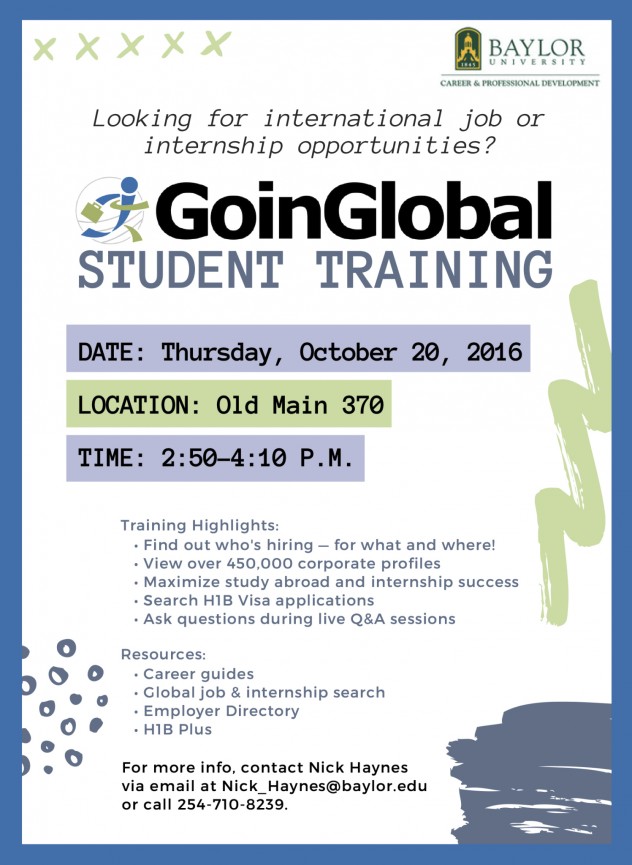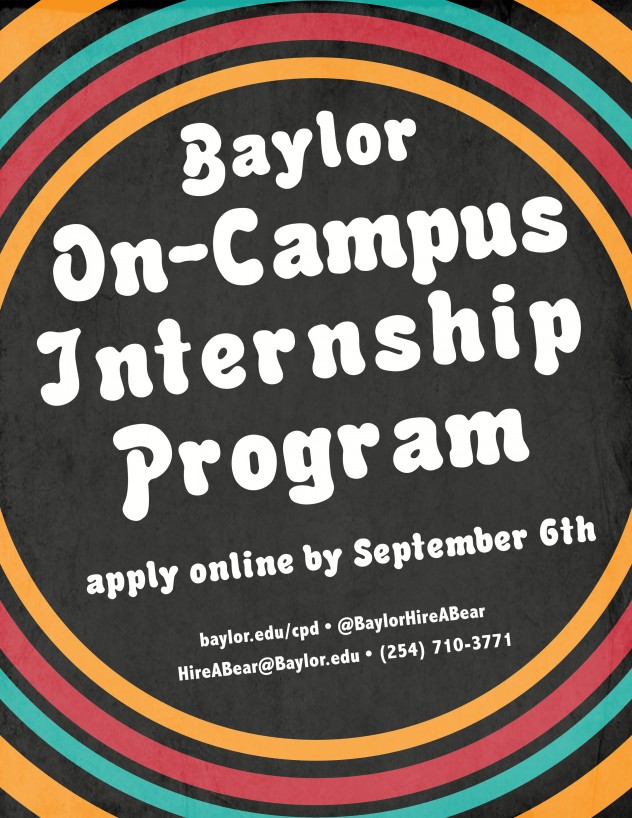Today we will explore a list of links available on the Career and Professional Development website for exploring your major, so grab a cup of coffee and join me on the tour!
1. Health-Related Programs at Baylor
Our first stop is a list of all the majors and prehealth programs Baylor has to offer. One really nice feature of this list is that each program is linked to the departmental website where you are sure to find even more information about the particular area, especially the list of courses you would need to take.
2. Majors and Minors at Baylor
The College of Arts and Sciences has done a tremendous job, taking each of their majors and giving a description, course examples, and potential job opportunities.
This link provides a list of all the major and minor options available at Baylor. It provides a description of the program, course examples, and potential job opportunities.. Since not all majors are minors and not all minors are majors, this resource can be a valuable way to gain a clear understanding of the minors offered.
3. The Princeton Review’s Major Descriptions
The Princeton Review offers an alphabetical search of a wide variety of majors, listing descriptions of each. If you want to get another perspective of what is involved in a particular major, this resource might be what you are looking for.
4. What Can I Do With This Major?
Career Services has put together a generous list of resources that address this very question. Search the list for majors of interest to you and click the link below the heading to view a PDF with valuable information about different possible areas to pursue with the major, employers for that major, and also strategies for pursuing a career in that field. I find the PDFs to be full of practical information. The site is also filled with valuable resources ranging from links to professional associations related to the major field to actual job listings in the area, so you can see exactly what employers are looking for in the hiring process.
5. What Can I Do With a Major In…?
For this link, we go to the University of North Carolina at Wilmington. They provide a rich list of majors their school provides, linking each to a list of information and valuable resources that students with interest in that field may find useful. One of my favorite pieces of information they provide is a list of careers that may be pursued with that major. This list is very detailed, so you may find other careers related to your major field that you might not have thought of yet.
Northern Illinois University has also put together a list of majors linked to valuable information for each. This website is another great resource to peruse to discover more information regarding majors you are interested in.
7. What can I do with my liberal arts degree?
If you have been asking yourself this question, then this link might be just right for you. A click on this link will take you to an article from the Occupation Outlook Quarterly that specifically explores this topic.
While not a major itself, Baylor’s Pre-Law program is a valuable pre-professional program that will help you prepare well for a future in law school and beyond. This link takes you to Baylor’s Pre-Law website, which is chock full of key information necessary for pursuing the field of law, from pre-law contacts in different university departments to a timeline that will help you stay on track as you pursue your goals.
I hope these resources are helpful as you explore majors of interest to you. Enjoy your weekend and Sic ‘Em, Bears!!!
By: Amy Ames







